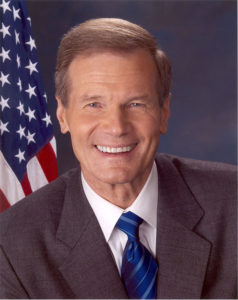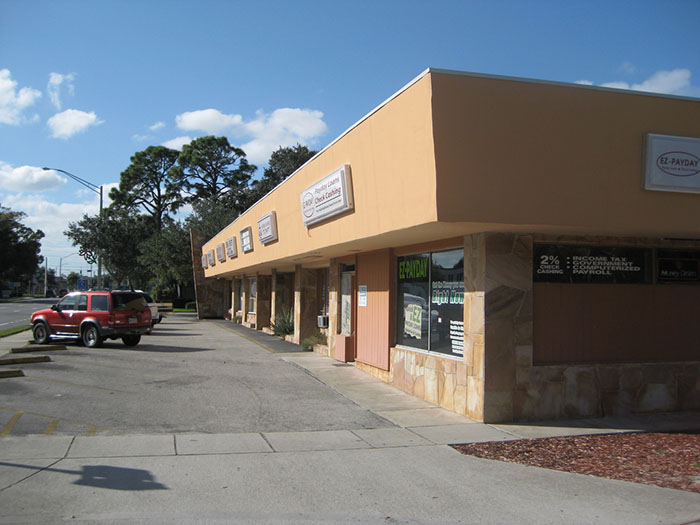by Gabriel Levitt, President, PharmacyChecker.com and Prescription Justice | Dec 21, 2017 | FDA enforcement

Standing up for his constituents on drug prices
Last month, I blogged about the FDA Office of Criminal Investigations’ sending agents with search warrants to pharmacy storefronts in Florida that help older people buy more affordable medications from Canada and other countries. The FDA tried unsuccessfully to get one of the stores’ owners, Bill Hepscher, who runs Canadian MedStore, to sign a statement acknowledging that reimportation of prescription drugs is illegal. The Florida pharmacy storefront story was first reported in Kaiser Health News.
Yesterday, Senator Bill Nelson (D-FL) sent a letter to FDA Commissioner Scott Gottlieb demanding to know why some prescription orders coming from Canada and other countries were seized, and inquiring why the FDA raided the storefront offices.
Clearly, Sen. Nelson understands the technical illegality of personal drug imports and the need to protect people from counterfeit drugs and Fentanyl. However, his letter underscores his confusion about why the FDA is stopping people from getting non-controlled, regular prescription drugs now. He wants to know specifically if there is a change in FDA’s overall enforcement policy.
I’ve been warning about the serious public health ramifications of overzealous FDA enforcement on access to affordable medication for a long time. In 2015, I wrote a report about online pharmacies and personal drug importation, and sent it to the Senate Committee on Health, Education, Labor and Pensions and the House Committee on Energy and Commerce.
Back in 2006, Senator Nelson played the leading role in ending stepped-up enforcement efforts by U.S. Customs and Border Patrol (more…)
Tagged with: Bill Hepscher, Enforcement, OCI, Scott Gottlieb, Storefront
by Gabriel Levitt, President, PharmacyChecker.com and Prescription Justice | Jun 3, 2016 | Personal Drug Importation, Policy, Storefronts
Yes, but it depends where you live. For example, if you live in Florida, according to Kaiser Health News, apparently it’s very easy to find a local “storefront” where you can buy lower cost medication from Canada and other countries. Of course, consumers do not need to go to a pharmacy storefront to benefit from lower drug prices in other countries. They can compare drug prices among safe international online pharmacies in our Verification Program.
As with most personal drug importation, the FDA has said importing meds from foreign pharmacies is technically illegal under most circumstances. In practice, the FDA does not prosecute individuals for importing small quantities of prescription drugs for personal use. According to Kaiser Health News, the pharmacy storefronts in Florida have not faced regulatory actions. A professor of health policy at University of South Florida, Sean Greggory, stated that shutting down storefronts “would be seen as restricting access to affordable drugs and supporting big bad [drug] corporations.”
PharmacyChecker.com checks the credentials of international online pharmacies to verify that they are licensed and operating properly but to date we have not checked storefront pharmacy operations. However, over the years, we’ve heard about storefronts throughout the U.S. that refer orders to pharmacies in other countries and, if those pharmacies are licensed and operating safety, we think it’s great!
The need for the storefronts is greatest among older Americans. Their Part D Medicare drug plans are not always adequate to cover prescription costs and seniors continue to face drug affordability problems. The storefronts, like international online pharmacies, offer much lower prices on brand name drugs than local U.S. pharmacies.
When online pharmacies, particularly the Canadian options, were first available over 15 years ago, many seniors did not know how to use the Internet or felt uncomfortable doing so. In 2000, only 14% of seniors used the Internet, compared to 58% in 2015 [Source]. But that still leaves a lot of seniors who might have trouble ordering medication online by themselves. For them, pharmacy storefronts can be a lifeline. As the Kaiser article points out, while “Many consumers do their own online buying from foreign pharmacies…storefront operators target an older generation interested in buying medicines abroad but who lack computer savvy and are insecure about buying online by themselves.”
Tagged with: Canadian pharmacies, Drug Importation, international online pharmacies, Storefront
by Gabriel Levitt, President, PharmacyChecker.com and Prescription Justice | May 22, 2015 | Counterfeit Drugs, Drug Safety, FDA, Personal Drug Importation
A story last Friday on ABC News’s 20/20 featured the topic of counterfeit drugs, their dangers and where they’re being sold. The story was helpful in educating the public about the threat of counterfeit drugs but it really seemed to play along with a misleading narrative, one propagated by the drug companies, that foreign medications are the same as counterfeit drugs. I’ve debunked this nonsense before: affordable and safe medications sold from foreign pharmacies are not the same as counterfeit drugs.
Also, as part of its feature on counterfeits, ABC’s website has a section called “How to Order Prescription Drugs Safely Online” that looks to the Alliance for Safe Online Pharmacies (ASOP) for useful consumer information. ASOP is financed and operated by big corporate pharmaceutical interests that oppose personal drug importation from safe online pharmacies. If you have great health insurance that covers all of your medications, or lots of money to cover exceedingly high out of pocket prescription drug costs, then the recommendations of ASOP might work for you because they recommend big U.S. chain pharmacies, such as Walgreens and CVS, which charge the world’s highest prices for medication. Many other Americans actually NEED safe international online pharmacies, which ASOP would call unapproved or even “rogue.”
It its story, ABC investigative journalists tracked down people selling prescription medications on the street, from push carts, even in clothing stores – usually in relatively poor neighborhoods. Eventually those people were arrested, all for the viewing audience to see. According to the federal agents involved, some of the medications seized were counterfeit and people did not have to provide a prescription to buy prescription drugs. The story was very troubling. Indeed, it was a powerful indictment of our society, one in which drug prices are so outrageously high that people, such as undocumented immigrants without health insurance, look to street peddlers to find affordable medication.
ABC also covered what are known as “Storefront” pharmacies, which are located throughout the country, often in strip malls, where people go to buy medications from pharmacies in other countries by mail order. These storefronts usually have titles that include the words “Canada,” or “Canadian,” and “Drugs,” “meds,” “medicine,” “Rx,” etc., which indicate that a person can acquire medicine from Canada. ABC wanted to highlight that the medications ordered at these places often do not come from Canadian pharmacies but from other countries. ABC’s implication is that people are being misled. On the other hand, when watching the show, it appeared that storefront personnel did communicate that the orders would not come from Canada so I’m not clear on what’s going on here. We wrote a piece about online pharmacies related to this issue: “So You Want to Buy Cheap Medicine from an Actual Canadian Pharmacy. Here’s the Deal.”
We do not verify storefronts but we believe that some of them are essentially people and companies that help Americans place prescription drug orders from foreign pharmacies that require a valid prescription. In fact, through ABC’s mystery shopping (meaning purchasing prescription drugs from storefronts) they were required to submit valid prescriptions and did so. A few weeks later the journalists received four medications, two of them brand, Viagra and Zocor, coming from Singapore and the UK, and two generics, tadalafil (the brand version known as Cialis) and finasteride (the brand version known as Propecia), both Indian drug products.
The story made it seem as if the two generics were either substandard or counterfeit, as it was noted they contained “impurities” or “unknown ingredients”. What ABC News did not communicate is that the so-called “impurities” or “unknown ingredients” might be acceptable inactive ingredients, excipients, etc., just different from those in the brand versions sold in the U.S. This is normal: generic drugs in the U.S. often have different inactive ingredients from their brand name counterparts. When the Indian generics were chemically tested, ABC showed the results as “fail” but didn’t tell you that generics sold in U.S. pharmacies would likely have failed as well if given that same test because they are not the exact same as the brand in terms of inactive ingredients.
Also, when ABC reported that most of the medicines did not meet FDA standards, it didn’t explain that simply having a label designed for a different country automatically means it does not meet FDA standards, regardless of the medication’s actual safety. In short, foreign sourced medications are often safe and effective products, approved for sale in the countries from which they are dispensed – but not counterfeit or substandard.
It’s important to note that the generics received by the journalists came from India, and, as we’ve written about before, India does have more problems with low quality and counterfeit drugs than in the U.S. or other rich countries. At the same time, India is the largest source of generic medications, exporting across the globe to wealthy, middle income and poor countries. In fact, 40% of generics sold in U.S. pharmacies are from India. It’s well known that the top Indian drug companies excel at making high quality, safe and effective prescription medications, but even among them problems exist, too.
On a closing note about ABC’s coverage of counterfeit drugs, I encourage our readers to look at the consumer comments section on ABC’s website. People don’t believe the big drug company propaganda, or even our trusted regulatory authorities like the FDA. That bothers me because the FDA is right that there are rogue pharmacy operators out there, often online, but they’re wrong not to acknowledge the relative safety and public health benefits of safe international online pharmacies. Hopefully ABC will really investigate…
Tagged with: 20/20, ABC News, Alliance for Safe Online Pharmacies, Storefront




